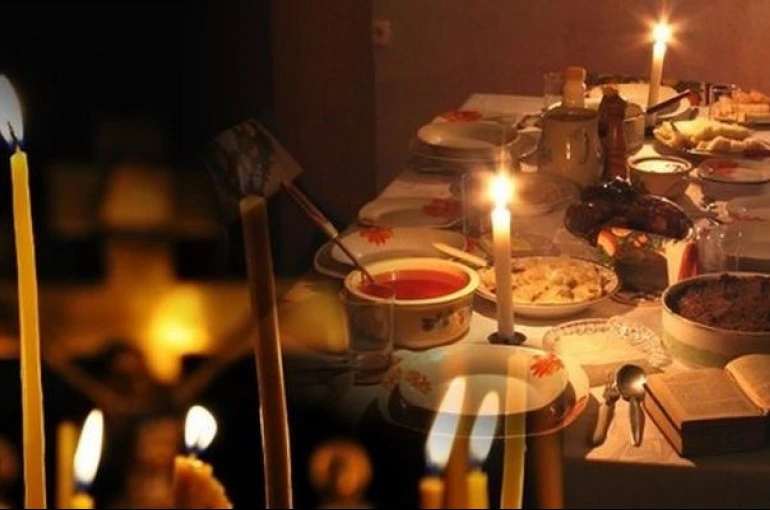The Great Lent period lasts 48 days from the original Carnival to St. Prerequisite for the resurrection (Easter). In 2025, the Greater Lent will start on March 3.
During the fasting, food products are used exclusively.
During the fast, they refuse not only certain foods, but also from molt habits, gossipies, lying, swearing and other sins.
Refusing to stand without sin is useless. "Satan is always in Lent, he does not eat anything, but he does not stop sinning and does not get tired," says S. Grigor Tatevatsi. "In the Sermon on the Mount, he says: "When you fast, don't be saddened by hypocrites, which their faces are distinguished to keep people, they are telling you, that is their fee, that is, to be praised by them and praised by them. But thou shalt fast, thou shalt make your head, so that thou shalt not fast to thy father, but thy father, and your Father who sees, shall reward you. "- Matt. 6: 16-18. ): Our owner teaches what spirit needs to make. How the disease affects the body, so sin affects the soul. It is not to keep the guilt atonation. God is the Redeemer. However, the maintenance is important in this sanctification. Repentance, prayer, repentance are the main conditions for God's healing and atoning power.
40 days of fasting symbolize the period of the forty-day prayer, fasting and repentance of Christ in the desert. After his baptism, Jesus "was led by the Spirit and was tried for forty days from Satan. He did not drink and did not drink those days "(Luke 4: 1-3). Jesus had fasted himself for the salvation of the human tribe, instead of mankind, repented that the repentance of all the protesters would make meaning and reality due to his fasting. Forty-to-day fast is followed by a one-week storage for the senior week. That's why the forty-day Lent lasts 48 days.
Great Lent has seven Sundays, seven memorable days. The original carnival, deportation, inconsistent, steward, judge, Galstyan and Flowering.
Great Lent shares a medium. Lent does not interrupt that day. It's just that according to the popular custom, it is preparing Gata from Baghdz.
During the Greater Lent, the crowns and the sacrifice were banned by ancient rules. However, in case of a catholicos of the Catholicos Vazgen I, the wedding was allowed to carry out wedding on Saturday and Sundays of Lent, exclusively for all senior days.
According to the church calendar, the year is divided into festive and folder days. Most of the storage are short-lived lentions (Wednesday and Fridays in memory of the betrayal of Jesus Christ) and the most popular and the longest long-lasting fasting. What is Lent? In the first sense, it is voluntary self-improvement and restraint to food. According to church tradition, there are three types of holdings. The first is the usual fasting from the food of animal origin (except Meghri) and the refusal of alcoholic beverages. The second is the reservation, the refusal of plant origin, even to eat with a pungeon, and the Great District is also called a psychological period). The third is the fast, for a while, the refusal to refuse food and even water.
Of course, the usefulness of fasting is also a medical point of view, especially in the Great Lent, as springing without fatty foods has a positive effect on the body. However, the mentality that fast is only a diet to lose weight or get rid of certain diseases. Lent is not limited to renunciation of animal food. It is primarily cleansed of all kinds of mental and moral diseases, sin, sin, words and deeds, to become a godly and virtuous life of repentance and repentance. In the archive, it is important to be strong in spiritual companies, especially in brotherhood, as the Yeznik Koghbatsi says: "One can not eat animal meat, but constantly chew his brother's meat." In this case, it is also important to warn another extreme. Keeping the Lent should not be the reason to judge our brotherly brother. "Whoever eats, let him not despise him who does not eat, and who does not eat, let him not give it to him who eats." - Rome .14: 3.
In order to understand the importance of fasting, we must emphasize the fact that it has been declared in paradise, and God's first commandment has been to keep him. "You can eat the fruit of every tree in Paradise, but do not eat of the trees of good and evil, for you will become a death." - Genesis 2: 16-17.
Unlike other churches, which are simply the 7 Sundays of Lent, the Armenian Church endowed those Sundays with unique names and advice. By doing so, they made a symbolic chain, reflecting the whole process of human paradise, delegation and decline, divine prelude.
The previous days of the holders (except) are called "Carnival", and the main condition is preceded by the Greater Lent. Good life, that is, a kind, carefree and happy life. This sense is summed up in the "Carnival" name, which is best expressed in the Board of Carnival, which is the first Sunday of Lent and depicts a child's paradise life. This council is even seen in the use of food, as the original Carnival is the last day to use animal and lavish food. The second Sunday of the Great Lent is called deportation and symbolizes the deportation of a man from paradise and deprivation of God's theory. This is what symbolizes the closed removal of church curtains throughout the Greater Lent. Remaining of believers from the sacrament. The third Sunday is called anonymously and points to the importance of becoming God to be God and to find the most important precondition - repentance. Fourth, the seamowner, teaches the maternity management of the management of material wealth in eternal salvation or loss. The fifth judge's Sunday, the judge, sends the irreplaceable significance of the lasting prayer for salvation. The last Sunday, Galstyan, summarizes the Galstic Council of Christ and the second Galsti promise.
The following weekly weekly week is called the last major realities of the Savior's earthly life, the victorious entrance to Jerusalem (Tsaghkazard), the last supper, betrayal, burial, and eventually the miraculous resurrection. Easter.


